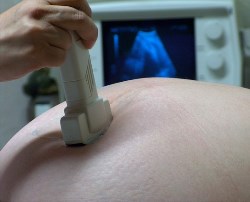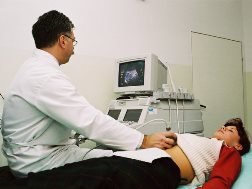How to Select the Right Sonogram Technician Degree Program near Hawaii National Park Hawaii
 Once you have decided to pursue an ultrasound technician degree near Hawaii National Park HI, it’s time to start the procedure of choosing a college. To begin with, you must find the ideal program that will provide the proper training to become a skilled professional. And because some states do require that sonographers be either licensed or certified, depending on where you will practice you may also need preparation to pass a licensing or certification exam. So it’s very important that you research each program so that you can evaluate and compare your options. But exactly where does one begin? Many potential students will begin by searching for schools that are within travelling distance of their residences and then by comparing tuition. Certainly cost and location need to be taken into account when arriving at a decision, but there are other important factors as well. For example, if the ultrasound technician schools are accredited or if they provide internships. These and other qualifiers will be discussed more in depth later in this post. But to start with, let’s discuss what an ultrasound tech does and the credentials and online education options that are available.
Once you have decided to pursue an ultrasound technician degree near Hawaii National Park HI, it’s time to start the procedure of choosing a college. To begin with, you must find the ideal program that will provide the proper training to become a skilled professional. And because some states do require that sonographers be either licensed or certified, depending on where you will practice you may also need preparation to pass a licensing or certification exam. So it’s very important that you research each program so that you can evaluate and compare your options. But exactly where does one begin? Many potential students will begin by searching for schools that are within travelling distance of their residences and then by comparing tuition. Certainly cost and location need to be taken into account when arriving at a decision, but there are other important factors as well. For example, if the ultrasound technician schools are accredited or if they provide internships. These and other qualifiers will be discussed more in depth later in this post. But to start with, let’s discuss what an ultrasound tech does and the credentials and online education options that are available.
Click Here to Get Free Information on Ultrasound Technician Schools!
Sonographer Work Description
 There are more than one acceptable titles for ultrasound techs (technicians). They are also called sonogram techs, diagnostic medical sonographers (or just sonographers) and ultrasound technologists. No matter what their title is, they all have the same primary job function, which is to carry out diagnostic ultrasound testing on patients. Even though a number of techs work as generalists there are specialties within the profession, for instance in cardiology and pediatrics. Most practice in Hawaii National Park HI clinics, hospitals, outpatient diagnostic imaging centers and even private practices. Standard daily job duties of a sonogram tech can involve:
There are more than one acceptable titles for ultrasound techs (technicians). They are also called sonogram techs, diagnostic medical sonographers (or just sonographers) and ultrasound technologists. No matter what their title is, they all have the same primary job function, which is to carry out diagnostic ultrasound testing on patients. Even though a number of techs work as generalists there are specialties within the profession, for instance in cardiology and pediatrics. Most practice in Hawaii National Park HI clinics, hospitals, outpatient diagnostic imaging centers and even private practices. Standard daily job duties of a sonogram tech can involve:
- Maintaining records of patient medical histories and details of each procedure
- Counseling patients by explaining the procedures and answering questions
- Preparing the ultrasound machines for testing and then cleaning and recalibrating them
- Moving patients to treatment rooms and making them comfortable
- Operating equipment while limiting patient exposure to sound waves
- Evaluating results and determining need for supplemental testing
Sonographers must regularly gauge the safety and performance of their machines. They also must adhere to a high professional standard and code of conduct as health practitioners. So as to sustain that level of professionalism and remain current with medical knowledge, they are mandated to complete continuing education training on an ongoing basis.
Ultrasound Tech Degree Programs Available
 Ultrasound tech students have the opportunity to earn either an Associate Degree or a Bachelor’s Degree. An Associate Degree will typically take about 18 months to 2 years to complete based upon the program and class load. A Bachelor’s Degree will take longer at up to four years to finish. Another alternative for those who have already obtained a college degree is a post graduate certificate program. If you have earned a Bachelor’s Degree in any major or an Associate Degree in a relevant health sector, you can instead choose a certificate program that will take only 12 to 18 months to complete. Something to keep in mind is that most ultrasound technician colleges do have a clinical training component as part of their curriculum. It can often be fulfilled by participating in an internship program which numerous schools set up with Hawaii National Park HI hospitals and clinics. When you have graduated from one of the degree or certificate programs, you will then have to fulfill the licensing or certification prerequisites in Hawaii or whatever state you decide to practice in.
Ultrasound tech students have the opportunity to earn either an Associate Degree or a Bachelor’s Degree. An Associate Degree will typically take about 18 months to 2 years to complete based upon the program and class load. A Bachelor’s Degree will take longer at up to four years to finish. Another alternative for those who have already obtained a college degree is a post graduate certificate program. If you have earned a Bachelor’s Degree in any major or an Associate Degree in a relevant health sector, you can instead choose a certificate program that will take only 12 to 18 months to complete. Something to keep in mind is that most ultrasound technician colleges do have a clinical training component as part of their curriculum. It can often be fulfilled by participating in an internship program which numerous schools set up with Hawaii National Park HI hospitals and clinics. When you have graduated from one of the degree or certificate programs, you will then have to fulfill the licensing or certification prerequisites in Hawaii or whatever state you decide to practice in.
Ultrasound Tech Online Schools
 As previously mentioned, almost all ultrasound technician schools have a practical component to their programs. So while you can receive a degree or certificate online, a significant part of the training will be either held in an on campus laboratory or at an approved off-campus facility. Clinical training can typically be fulfilled through an internship at a local Hawaii National Park HI outpatient clinic, hospital or private practice. But the remainder of the classes and training can be accessed online in your Hawaii National Park home. This is particularly convenient for those individuals that continue working while earning their degrees. Plus online programs are often more affordable than on-campus alternatives. Costs for study materials and commuting can be lessened as well. But similarly as with every sonographer school you are looking at, verify that the online school you ultimately pick is accredited. One of the most highly respected accrediting agencies is the Commission on Accreditation of Allied Health Education Programs (CAAHEP). Accreditation is especially important for licensing, certification and job placement (more on accreditation later). So if you are dedicated enough to learn away from the classroom in the convenience of your own home, then online classes may be the right choice for you.
As previously mentioned, almost all ultrasound technician schools have a practical component to their programs. So while you can receive a degree or certificate online, a significant part of the training will be either held in an on campus laboratory or at an approved off-campus facility. Clinical training can typically be fulfilled through an internship at a local Hawaii National Park HI outpatient clinic, hospital or private practice. But the remainder of the classes and training can be accessed online in your Hawaii National Park home. This is particularly convenient for those individuals that continue working while earning their degrees. Plus online programs are often more affordable than on-campus alternatives. Costs for study materials and commuting can be lessened as well. But similarly as with every sonographer school you are looking at, verify that the online school you ultimately pick is accredited. One of the most highly respected accrediting agencies is the Commission on Accreditation of Allied Health Education Programs (CAAHEP). Accreditation is especially important for licensing, certification and job placement (more on accreditation later). So if you are dedicated enough to learn away from the classroom in the convenience of your own home, then online classes may be the right choice for you.
Topics to Ask Sonogram Tech Colleges
 Now that you have determined the type of degree or certificate that you would like to earn, you can start the process of evaluating and comparing ultrasound tech colleges. You may first want to decide whether you will access classes online or travel to a college campus in the Hawaii National Park HI area. Certainly location will be important if you decide on the latter, and the price of tuition no doubt will be an initial qualification also. But there are additional things that you must also take into consideration, for instance if the schools are accredited and if they sponsor internship programs. Therefore in order to perform your due diligence so that you can make your ultimate selection, following are a few questions that you need ask each sonography college prior to making a decision.
Now that you have determined the type of degree or certificate that you would like to earn, you can start the process of evaluating and comparing ultrasound tech colleges. You may first want to decide whether you will access classes online or travel to a college campus in the Hawaii National Park HI area. Certainly location will be important if you decide on the latter, and the price of tuition no doubt will be an initial qualification also. But there are additional things that you must also take into consideration, for instance if the schools are accredited and if they sponsor internship programs. Therefore in order to perform your due diligence so that you can make your ultimate selection, following are a few questions that you need ask each sonography college prior to making a decision.
Are the Sonogram Technician Colleges Accredited? A large number of sonogram technician schools have earned some form of accreditation, whether regional or national. Nevertheless, it’s still imperative to verify that the school and program are accredited. One of the most highly respected accrediting agencies in the field of sonography is the Joint Review Committee on Education in Diagnostic Medical Sonography (JRC-DMS). Schools earning accreditation from the JRC-DMS have gone through an extensive review of their teachers and educational materials. If the school is online it may also receive accreditation from the Distance Education and Training Council, which targets online or distance education. All accrediting agencies should be recognized by the U.S. Department of Education or the Council on Higher Education Accreditation. Besides ensuring a premium education, accreditation will also assist in obtaining financial aid and student loans, which are often not available for non-accredited schools. Accreditation might also be a pre-requisite for certification and licensing as required. And many Hawaii National Park HI health facilities will only hire a graduate of an accredited program for entry-level positions.
Are Internships Provided? Find out if the sonogram tech colleges you are evaluating have relationships with Hawaii National Park HI hospitals or clinics for internship programs. Internships are not only a great means to get practical experience in a clinical environment, they are additionally a means to satisfy the practical training requirement for most programs. As an ancillary benefit, they may help students and graduates establish professional relationships in the Hawaii National Park healthcare community and assist with obtaining employment.
Is Job Placement Assistance available? You will most likely want to hit the ground running after graduation, but finding that initial job in a new field can be difficult without assistance. Find out if the ultrasound tech schools you are reviewing have job placement programs and what their placement rates are. High and rapid placement rates are a good sign that the schools have substantial networks and great relationships with Hawaii healthcare employers. It also substantiates that their students are highly regarded and in demand.
Where is the School Located? For a number of students, the college they decide on will need to be within commuting distance of their Hawaii National Park HI residence. Students who have chosen to attend online classes obviously will not have to concern themselves with the location of the campus. However, the availability of local internships will be of concern. Something to consider is that if you choose to enroll in a program that is out of state or even out of your local area, you might be required to pay a higher tuition. State colleges typically charge higher tuitions for out of state residents. And community colleges often charge a higher tuition to those students that don’t reside within their districts.
How Big are the Classes ? Unless you are the type of student that likes to sit far in the rear of class or hide in the crowd, you will undoubtedly want a smaller class size. Small classes permit more individual participation and one-on-one instruction. Ask the colleges you are researching what the average student to teacher ratio is for their classes. If practical you may prefer to monitor one or more classes before making your ultimate determination. This will also give you a chance to talk with a few of the instructors and students to get their opinions regarding the sonogram tech program as well.
Can the School Accommodate your Schedule? And finally you must verify that the ultrasound tech school you ultimately pick can offer the class schedule you need. This is especially essential if you choose to continue working while you attend classes. If you must schedule evening or weekend classes in the Hawaii National Park HI area, check that they are available. If you can only attend part-time, check if that is an alternative and how many courses or credit hours you would have to enroll in. Also, ask what the procedure is for making up any classes that you might miss due to work, illness or family obligations.
Ultrasound Technician College Degree Hawaii National Park Hawaii
 Choosing the right sonographer degree or certificate program is a crucial first step to initiating a fulfilling new profession providing diagnostic services to patients. Sonographer programs require that you have a high school diploma or a GED. In addition to meeting academic requirements, you should be in at least reasonably good physical health, capable of standing for prolonged periods with the ability to routinely lift weights of 50 pounds or more, as is it typically necessary to adjust patients and move heavy machines. Additional preferred talents include technical proficiency, the ability to stay levelheaded when confronted by an angry or anxious patient and the ability to converse in a clear and compassionate manner. You originally came to this website due to an interest in Ultrasound Technician College Degree and wanting more information on Online Ultrasound Programs. However, as we have discussed in this article, there are multiple questions that you should ask each program you are considering. This holds true whether you choose an online program or commute to the college campus to attend classes. And by asking the appropriate questions so that you can evaluate each program, you can narrow down your choices until you are left with the best program for your education. And with the right training, dedication and determination to succeed, you can accomplish your goal to practice as an ultrasound technologist in Hawaii National Park HI.
Choosing the right sonographer degree or certificate program is a crucial first step to initiating a fulfilling new profession providing diagnostic services to patients. Sonographer programs require that you have a high school diploma or a GED. In addition to meeting academic requirements, you should be in at least reasonably good physical health, capable of standing for prolonged periods with the ability to routinely lift weights of 50 pounds or more, as is it typically necessary to adjust patients and move heavy machines. Additional preferred talents include technical proficiency, the ability to stay levelheaded when confronted by an angry or anxious patient and the ability to converse in a clear and compassionate manner. You originally came to this website due to an interest in Ultrasound Technician College Degree and wanting more information on Online Ultrasound Programs. However, as we have discussed in this article, there are multiple questions that you should ask each program you are considering. This holds true whether you choose an online program or commute to the college campus to attend classes. And by asking the appropriate questions so that you can evaluate each program, you can narrow down your choices until you are left with the best program for your education. And with the right training, dedication and determination to succeed, you can accomplish your goal to practice as an ultrasound technologist in Hawaii National Park HI.
More Ultrasound Locations in Hawaii
Hawaiʻi Volcanoes National Park
Hawaiʻi Volcanoes National Park, established on August 1, 1916, is an American national park located in the U.S. state of Hawaii on the island of Hawaii. The park encompasses two active volcanoes: Kīlauea, one of the world's most active volcanoes, and Mauna Loa, the world's most massive shield volcano. The park provides scientists with insight into the birth and development of the Hawaiian Islands, and ongoing studies into the processes of volcanism. For visitors, the park offers dramatic volcanic landscapes, as well as glimpses of rare flora and fauna.
In recognition of its outstanding natural values, Hawaiʻi Volcanoes National Park was designated as an International Biosphere Reserve in 1980 and a World Heritage Site in 1987.[3] In 2012, the park was depicted on the 14th quarter of the America the Beautiful Quarters series.
On May 11, 2018, the park was closed to the public in the Kīlauea volcano summit area, including the visitor center and park headquarters, due to explosions and toxic ash clouds from the Halemaʻumaʻu Crater, as well as earthquakes and road damage.[4][5] Portions of the park, including the visitor center, reopened to the public on September 22, 2018.[6][7] As of 2019[update], most of the park is open; however, some road segments and trails, the Thurston Lava Tube, and the Jaggar Museum of the Hawaiian Volcano Observatory remain closed to visitors.[4]
Business Results 1 - 10 of 2




